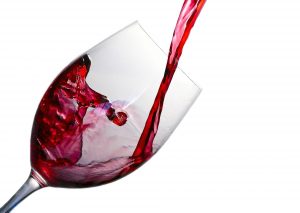Quercetin is one of the most abundant flavonoids found in many fruits and vegetables, including red grapes, onions, green tea, apples, and berries. Studies has found it has plenty of antioxidant and anti-inflammatory properties capable of reducing swelling, killing cancer cells, managing blood sugar, and reducing the risk of heart disease.
Taken as food supplement, Quercetin is most commonly recommended as a natural alternative in the management or prevention of the heart problems, poor blood vessels, certain cancers. It is also used to alleviate or control diabetes, arthritis, and bladder infections, although there is no good evidence to support some of these claims.
Quercetin is also a powerful remedy to support prostate health. Some studies have shown, wen taken along with Pollen, quercetin can help restore prostate health and has benefits for men suffering with enlarged prostate (BPH), prostatitis, and prostate cancer. Quercetin can help repair those damaged cells of your prostatic gland and helps it work more efficiently.
In this article, you will learn 15 Quercetin benefits and many foods that contain quercetin which you can eat to improve your intake of this beneficial plant flavonol.
Here are the 15 benefits of Quercetin
- Inhibits Spread of Prostate Cancer Cells
A study published in Molecular and Cellular Biochemistry noted that quercetin could play a key role in helping prevent the spread of prostate cancer. Quercetin was shown to promote and enhance the death of prostate cancer cells in several studies conducted at the University of Pittsburgh. In addition to those studies a 2017 study reported quercetin was effective in reducing the volume of tumors in the prostate. According to some studies, men who ejaculate more have lower incidence of prostate cancer.
- Reduces BPH Symptoms
Benign prostatic hyperplasia, commonly known as BPH, occurs when a man’s prostate becomes enlarged. Quercetin has been effective in reducing the symptoms of BPH. Clinical study conducted on BPH management with quercetin, which was reviewed by Curtis et al. (2008), did not deny the anti-BPH effect of quercetin. In addition, a double-blind randomized clinical trial conducted by Ghorbanibirgani (2012) found quercetin was very beneficial in the treatment of BPH.
- Relieves Prostatitis Symptoms
Quercetin can help reduce pain and relieve symptoms caused by prostatitis. Prostatitis is an infection men get in their prostate. This infection may cause symptoms such as pain or burning when urinating, frequent urination especially at night, needing to urinate urgently, pain in the groin, lower back, abdomen, penis or testicles, pain when ejaculating or premature ejaculation. In 1999, researchers reported that quercetin provided significant symptomatic improvement in men with chronic non-bacterial prostatitis/chronic pelvic pain syndrome.
- Prevents Bacterial Infections
Quercetin has antibacterial properties that are effective in fighting almost any type of bacterial infection. It has been linked to fighting infections of the skin, respiratory system, urinary tract, stomach, and intestines.
- Fights Viral Infections
Quercetin is one of the flavonoids that may help fight of viruses such as Japanese encephalitis and herpes simplex virus. It has been studied in various types and models of viral infection due to its promising antiviral effects. In fact, in recent years Quercetin has become a supplement of choice in natural treatment against respiratory viral infections thanks to its specific regulatory activity on the inflammatory processes that are triggered by the immune response.
- Alleviates Bladder Problems
Men develop problems urinating when they have bladder disorders. Quercetin has been used as an alternative treatment to increase urine flow rates and reduce pain in men with Interstitial Cystitis (IC), a chronic bladder condition characterized by discomfort or pain in the bladder or surrounding pelvic region. Oral bioflavonoid therapy utilizing quercetin recently proved to be clinically effective in men with chronic pelvic pain syndrome, a disorder with similarities to IC.
- Protects against complications of Diabetes
Research indicates that quercetin may reduce fasting blood sugar levels and protect against complications of diabetes. A recent study published by Bastyr University to measure the effect of quercetin on glucose tolerance in participants with Type 2 Diabetes found a reduction of Glucose Curve for the 2 hours following the intake of 100g quercetin compared to placebo.
- Reduces risk of cardiovascular disease
Quercetin is commonly used as an alternative to help prevent heart disease, strokes, and other heart conditions. A Double-blind Randomized Controlled Clinical Trial was performed to determine Quercetin Improve Cardiovascular Risk factors found Quercetin supplementation reduced systolic blood pressure significantly but had no effect on other cardiovascular risk factors.
- Fights free radicals
Quercetin is an antioxidant in the diet that plays a significant role in helping your body fight free radical damage caused by pollution, smoke, radiation, and chemical toxins. Free radicals are unstable molecules that may cause cellular damage when their levels become too high. Antioxidants can bind to and neutralize these free radicals which can help prevent chronic diseases.
- Reduces Unhealthy inflammation
Quercetin has anti-inflammatory properties that makes it a suitable for men who want help with recovery after getting a prostate biopsy. Quercetin may reduce pain and swelling that is associated with this procedure. Inflammation is the body’s natural process to heal and defend itself from harm; however, inflammation is harmful when becomes chronic and can lead to various health problems.
- Improves Endurance and Performance
Studies have revealed that when people take quercetin, it may improve endurance during exercise. It is believed Taking quercetin by mouth before exercise may improve athletic performance by decreasing fatigue or improve exercise ability, but there is not enough reliable evidence to confirm this claim.
- Alleviates Rheumatoid arthritis (RA)
When 500 mg of quercetin were taken daily by participants in a study, they experienced significantly reduced morning pain, morning stiffness, and pain after activities. In another recent study conducted by Kai Yuan and his team to analyze the therapeutic mechanism of quercetin on Rheumatoid Arthritis symptoms showed that the supplement ameliorates inflammation by inhibiting neutrophil activities. These findings suggest that quercetin may be used an alternative treatment of Arthritis.
- Protects against Neurodegeneration
Neurodegeneration, characterized by progressive deterioration of the structure and function of neurons, is crucially accompanied by severe cognitive deficits. Aging is the major risk factor for neurodegenerative disorders in Alzheimer’s disease (AD) and Parkinson’s disease (PD). Because of their potent antioxidant defense mechanism, Flavonoids are commonly used as prevention against brain disorders. “Quercetin is a ubiquitous flavonoid reported to have all-natural myriad of health benefits”, including protection against degenerative brain disorders such as dementia and early Alzheimer’s disease.
- Reduces high blood pressure
Quercetin has a relaxing effect on blood vessels and reduces blood pressure levels. A review of nine studies with 580 people found that taking in excess of 500 mg of quercetin daily in supplement form reduced the diastolic and systolic blood pressure. High blood pressure affects 1 and 3 American adults and raises your risk of heart disease. Heart disease is the leading cause of death in the United States.
- Relieves Allergy and hay fever
It is believed that quercetin can provide allergy symptom relief because of its anti-inflammatory properties. Studies have found that it may block enzymes involved in inflammation and suppress inflammation-promoting chemicals like histamine to stop anaphylactic reactions.
Foods and beverages that contain quercetin
Quercetin can be found in many plant-based foods, particularly in the outer layer or peel. It is in fruits, vegetables, leaves, seeds, and grains. Quercetin is available as a dietary supplement in capsule or powder form. The amount of quercetin in foods depends on the conditions in which it was grown. There are some organic foods that will have a higher percentage of quercetin than conventionally grown foods. A study was done on organic tomatoes, and they appear to have 79% more quercetin than conventionally grown tomatoes. There was a study on bell peppers and there was no difference between the peppers grown conventionally and the peppers grown organically.
Here are some common foods and beverages we consume regularly that contain quercetin.
Foods Rich in Quercetin
- Shallots
- Onions – red and white
- Asparagus
- Kale
- Red apples
- Berries – all types, such as cranberries, blueberries, and raspberries
- Red grapes
- Citrus fruits
- Cherries
- Capers
BEVERAGES
- Coffee
- Tea – green and black
- Red wine
Quercetin on its own has a low bioavailability, which means your body absorbs it poorly. For this reason, supplements may include other compounds such as vitamin C or digestive enzymes like bromelain which help increase the absorption however the additional nutrients have added benefits.
In SUMMARY
Quercetin should be one of your first choices as an alternative therapy, especially if you are a man that wants to prevent health problems or is suffering from heart disease, prostate, or bladder disorders. Quercetin significantly improves your heart health and reduces symptoms that come with these disorders. Quercetin has been proven to be beneficial when used on its own or combined with other natural alternatives.
Quercetin renders many positive results due to its anti-inflammatory and antioxidant properties. The bottom line is quercetin is a beneficial alternative therapy that can improve your quality of life and an abundance of ailments.



